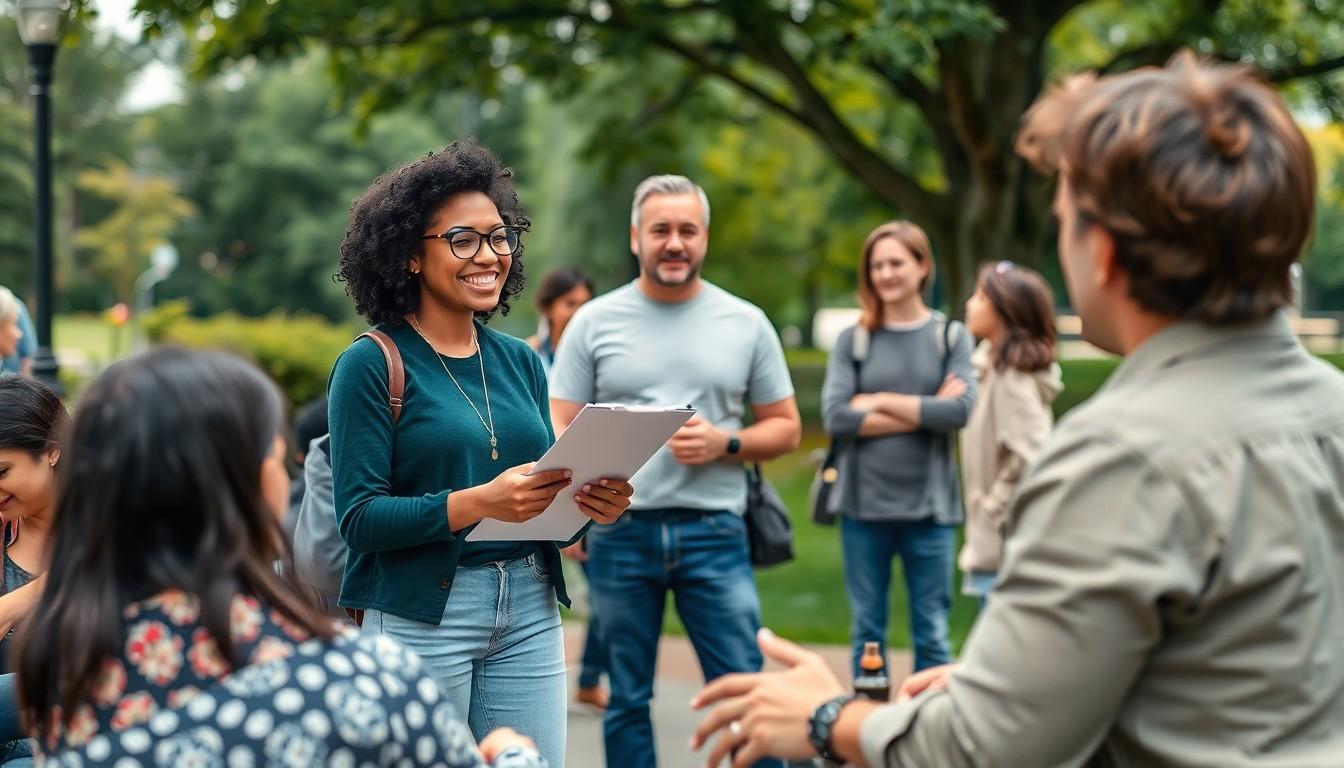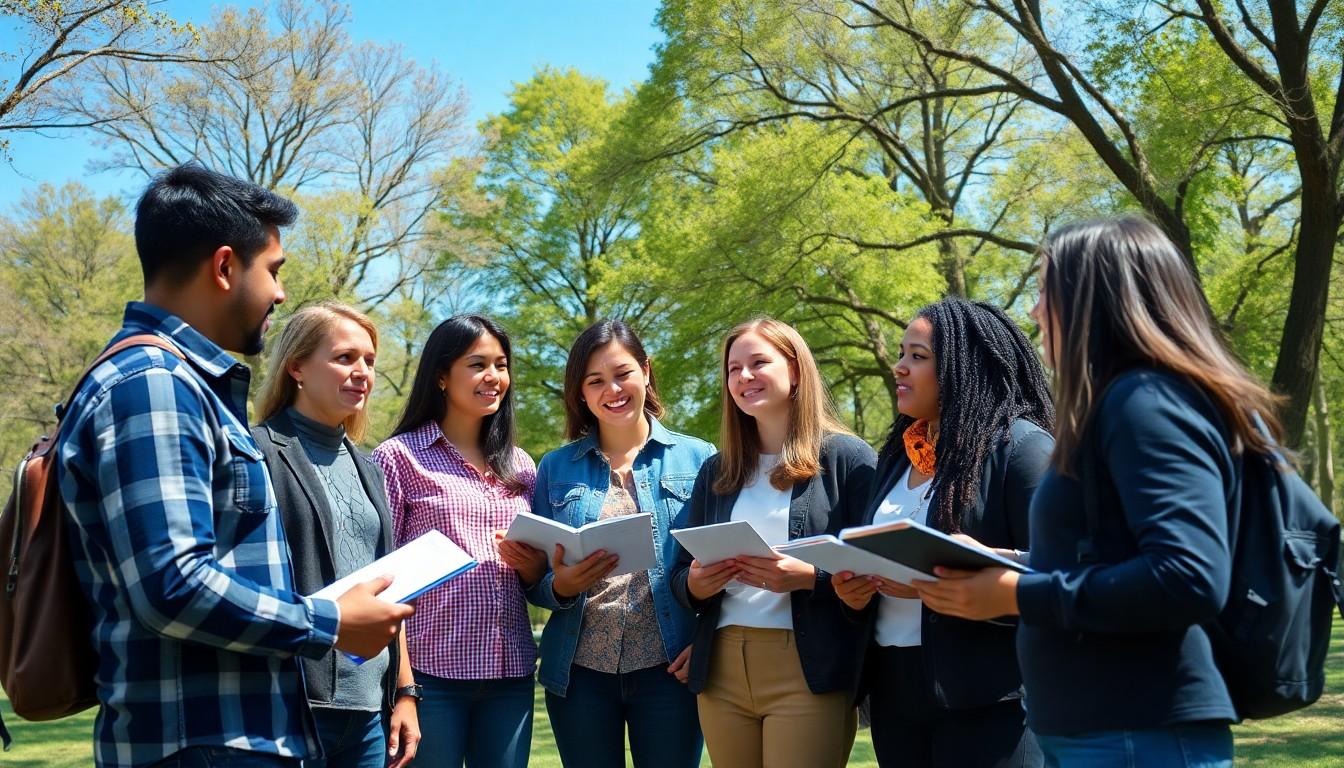The Best Fluffy Pancakes recipe you will fall in love with. Full of tips and tricks to help you make the best pancakes.

How to Get Started in Politics: Your Ultimate Guide to Making an Impact Today
Thinking about diving into the wild world of politics? It’s like jumping into a pool of sharks wearing a meat suit—exciting but a tad intimidating. Yet, with the right guidance, anyone can navigate this unpredictable terrain and make a splash. Whether it’s running for local office or simply voicing opinions at town hall meetings, the journey starts with a single step.
How to Get Started in Politics
Engaging in politics requires a grasp of the political environment. Knowledge about systems, issues, and influence shapes effective participation.
Importance of Political Awareness
Political awareness empowers individuals to navigate complex systems. Understanding current events and policies aids informed decision-making. Citizens who follow developments can advocate for their interests more effectively. With awareness, they connect issues to real-world implications. Raising fundamental questions enhances civic engagement.
Different Types of Political Engagement
Engagement in politics comes in various forms. Voting represents a primary method for expressing opinions. Running for office allows individuals to directly influence policies. Attending town hall meetings fosters community discussion and transparency. Grassroots organizing connects people around common goals. Social media activism amplifies voices and raises awareness. Each type of engagement cultivates political involvement and community awareness.
Identifying Your Political Goals

Understanding personal political goals involves clarity in values and aspirations. Individuals can navigate their political journey effectively by identifying these elements.
Defining Your Values and Beliefs
Values shape political views and influence decisions. To define these values, individuals should reflect on issues that matter most, such as education, healthcare, or environmental policies. Understanding personal beliefs fosters authentic engagement and helps articulate a political stance. Identifying core principles enables individuals to connect with like-minded groups and communities, enhancing their impact.
Setting Achievable Objectives
Establishing clear objectives simplifies the political journey. Individuals might focus on specific goals, such as increasing voter turnout or advocating for local policy changes. Achievable short-term objectives create stepping stones toward long-term aspirations. Breaking down larger aims into manageable tasks enhances motivation and progress. Tracking these objectives and celebrating milestones fosters a sense of accomplishment and reinforces commitment to political involvement.
Building Your Network
Building a strong network is essential for anyone starting in politics. Connections with others in the field can provide support and guidance.
Connecting with Local Leaders
Engaging with local leaders offers valuable insights into political dynamics. Attend community meetings to meet influential figures. Developing relationships with local officials fosters trust and opens doors for collaboration. Political leaders often appreciate passionate individuals eager to learn and contribute. Volunteering for local campaigns enhances visibility and demonstrates commitment. By nurturing these connections, individuals can gain mentorship and access to resources that further their political aspirations.
Joining Political Organizations
Joining political organizations amplifies one’s impact in the community. Numerous groups focus on various political issues, providing members platforms for advocacy. Membership often involves events, discussions, and networking opportunities, allowing individuals to connect with like-minded activists. Participating in organized events keeps members informed about pressing issues. Many organizations also offer training programs that equip individuals with essential skills for political engagement. Engaging in these settings cultivates a sense of belonging and purpose, reinforcing commitment to political goals.
Gaining Relevant Experience
Gaining relevant experience is crucial for anyone entering politics. Engaging in practical opportunities not only builds skills but also connects individuals to the political landscape.
Volunteering for Campaigns
Volunteering for political campaigns provides firsthand exposure to the electoral process. Participants gain insights into campaign strategies, voter outreach, and event organization. Tasks commonly include canvassing, phone banking, and assisting with social media efforts. Individuals working on campaigns build relationships with candidates and campaign staff, forming a valuable network. Such experience reveals the demands of political life and helps shape future aspirations in the field.
Participating in Community Events
Participating in community events fosters local engagement and awareness of pressing issues. Events can range from town hall meetings to community forums and advocacy programs. Individuals find opportunities to share opinions, listen to diverse perspectives, and connect with local leaders. Engaging in discussions enhances understanding of community needs and inspires action. Relationships built during these events often lead to collaboration on initiatives that drive change and strengthen civic bonds.
Developing Key Skills
Individuals entering politics benefit from developing key skills. Communication and policy analysis stand out as essential components that enhance engagement.
Enhancing Communication Skills
Building strong communication skills proves crucial in the political arena. Effective speaking and writing allow individuals to convey their messages clearly. Crafting persuasive arguments engages audiences and encourages support. Listening actively fosters understanding of diverse perspectives, facilitating productive discussions. Practicing public speaking in local forums or community events builds confidence and proficiency. Joining debate clubs or workshops also refines these abilities, ensuring clarity in expression. Networking with seasoned politicians and attending town hall meetings offers insights into persuasive communication strategies.
Learning about Policy Analysis
Understanding policy analysis provides a foundation for informed political participation. Grasping complex policies and their implications guides decision-making. Engaging with research and reports sharpens analytical skills and fosters critical thinking. Studying past legislative changes equips individuals to identify trends and predict outcomes. Participating in workshops or online courses enhances knowledge of key policy areas, such as healthcare, education, and the environment. Collaborating with local advocacy groups offers practical insights into policy impacts on communities. Reading scholarly articles keeps individuals updated on current debates, enriching their understanding of the political landscape.
Getting started in politics is an empowering journey that opens doors to meaningful change. By taking that first step and engaging with the political landscape, individuals can make their voices heard. Understanding personal values and setting clear goals lays a strong foundation for effective participation.
Building a network and gaining practical experience further enhances one’s ability to influence the community. Developing essential skills like communication and policy analysis ensures individuals are well-equipped to navigate the complexities of political engagement. With dedication and a proactive approach, anyone can contribute to shaping their community and advocating for the issues that matter most.
